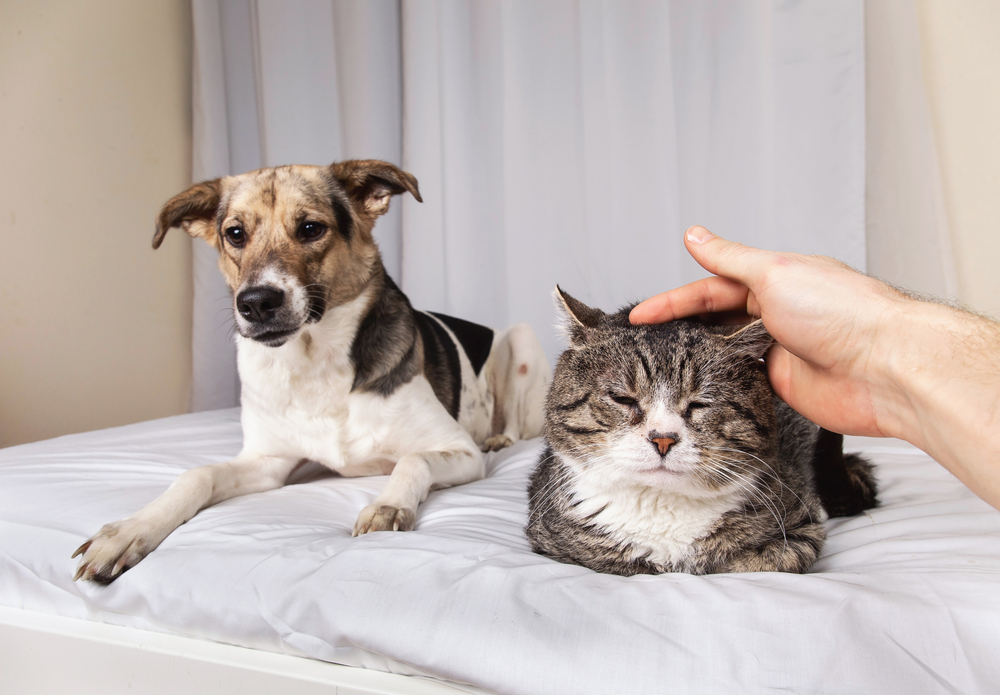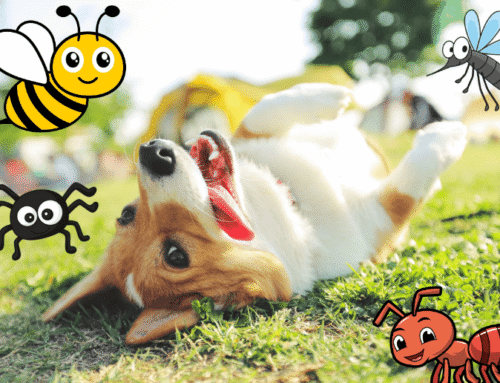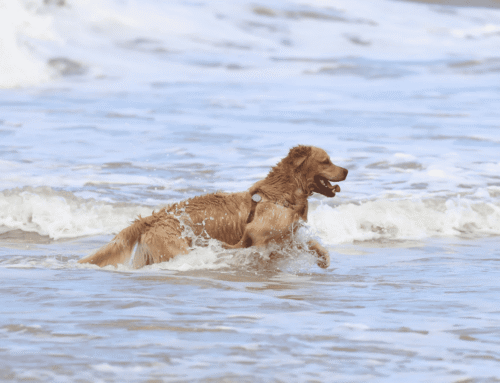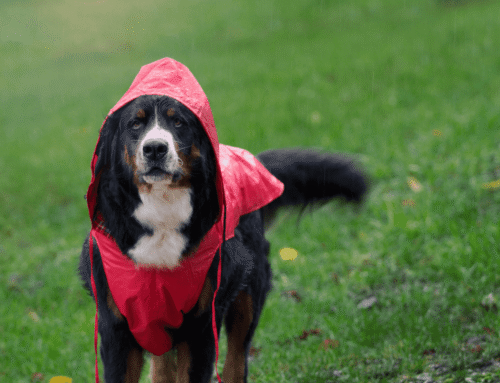Pets become seniors between 6 and 11 years of age, with large-breed dogs reaching senior status earlier than those who are smaller. Large dogs also become seniors earlier than cats. Although you may feel bittersweet about your furry pal reaching the senior milestone, aging is a natural part of life and pet ownership, and you can take steps to ensure your pet’s golden years are their best. Supporting a senior pet requires extra attention to detail and a good partnership with your veterinarian. Learn about seven essential veterinary services our Mount Pleasant Animal Hospital team provides for senior pets.
#1: Wellness examinations for senior pets
During your senior pet’s semiannual wellness examinations, our team thoroughly assesses your furry pal’s health. Changes happen quickly in older pets, but routine exams enable us to detect these conditions, so we can address them sooner rather than later, or monitor the problems over time. Common senior physical examination findings that may require treatment to restore your pet’s quality of life (QOL) include arthritis, dental disease, masses, or heart problems.
#2: Diagnostic screening tests for senior pets
Diagnostic screening tests complement wellness examinations by providing a more complete health status picture. Blood and urine tests are the most commonly recommended screening tools and should be performed each year to look for trends in organ function, immune status, and other health markers. We may also recommend additional tests, depending on your pet’s age, breed, and health history, including the following:
- Chest or abdominal X-rays
- Heart or abdominal ultrasound
- Blood pressure measurement
- Electrocardiogram (EKG)
- Cancer screening
#3: Dental care for senior pets
Dental care should continue throughout a pet’s life, including in their senior years. Although older pets metabolize drugs differently than their younger counterparts, their anesthesia complication risks are not significantly different, and they can safely undergo the dental procedures our Mount Pleasant Animal Hospital team recommends. To reduce the need for costly anesthetized procedures, you should brush your pet’s teeth daily. If your pet does not tolerate toothbrushing, visit the Veterinary Oral Health Council (VOHC) website and learn about chews, water additives, and other plaque-reducing dental health products.
#4: Rehabilitation for senior pets
Our veterinary team employs an experienced veterinary rehabilitation practitioner who can treat many pets’ ailments. Rehabilitation helps manage common senior pet issues, including obesity, joint disease, and reduced muscle strength. Our team’s rehabilitation practitioner can customize your furry pal’s rehabilitation plan, based on your pet’s individual needs. Such a plan may include various modalities, including water treadmill, land treadmill, therapeutic exercise, transcutaneous electrical nerve stimulation (TENS), ultrasound, laser therapy, and more. Keeping your pet mobile is important for their physical health and their mental and emotional wellbeing.
#5: Acupuncture for senior pets
Acupuncture is a Traditional Chinese Veterinary Medicine (TCVM) practice that uses needles to stimulate points throughout the body. This treatment modality stimulates the nervous system and has been proven in scientific studies to reduce many chronic medical issues’ pain and increase affected body points’ function. Because the needles are extremely thin, most pets tolerate this procedure well and become calm and relaxed during sessions. This drug-free pain control method has minimal side effects and is safe for nearly any condition.
#6: Nutrition for senior pets
Our Mount Pleasant Animal Hospital team is knowledgeable about pets’ specialized nutrition needs and can help you choose the right diet for your senior pet. We take into account your pet’s current and ideal weight, underlying health conditions, activity level, and goals when choosing or recommending a specific diet. To simplify disease management, our prescription formulas are available to seniors who have one or more diet-responsive medical issues, such as kidney or gastrointestinal (GI) disease.
#7: Quality-of-life assessment for senior pets
If your pet is reaching the end of their expected life span, we recommend you regularly assess their QOL. Some assessment aspects include appetite, thirst, pain level, social interaction, activity level, contentment, and mobility, but the most important aspect varies depending on your pet’s condition. Our team can help you learn how to evaluate your pet’s QOL and make informed end-of-life decisions.
You can also help your senior pet
In addition to the senior pet veterinary services we provide, our Mount Pleasant Animal Hospital team urges you to help your furry pal at home. To help ensure your senior pal has easy access to essentials, including food, water, litter boxes, and supportive bedding, consider making modifications to your home. You can install ramps, pet stairs, and pet gates to improve your pet’s mobility and safety and prevent falls. Our team also recommends you place rugs on slick surfaces to increase your pet’s traction.
If your pet is due for their routine wellness exam or needs other senior veterinary services, call or book your pet’s appointment online with our Mount Pleasant Animal Hospital team. For convenient care across the area, check out our sister hospitals—Shuler Veterinary Clinic and Safe Harbor Animal Hospital—or learn about our family’s story at Animal Hospitals of the Lowcountry.








